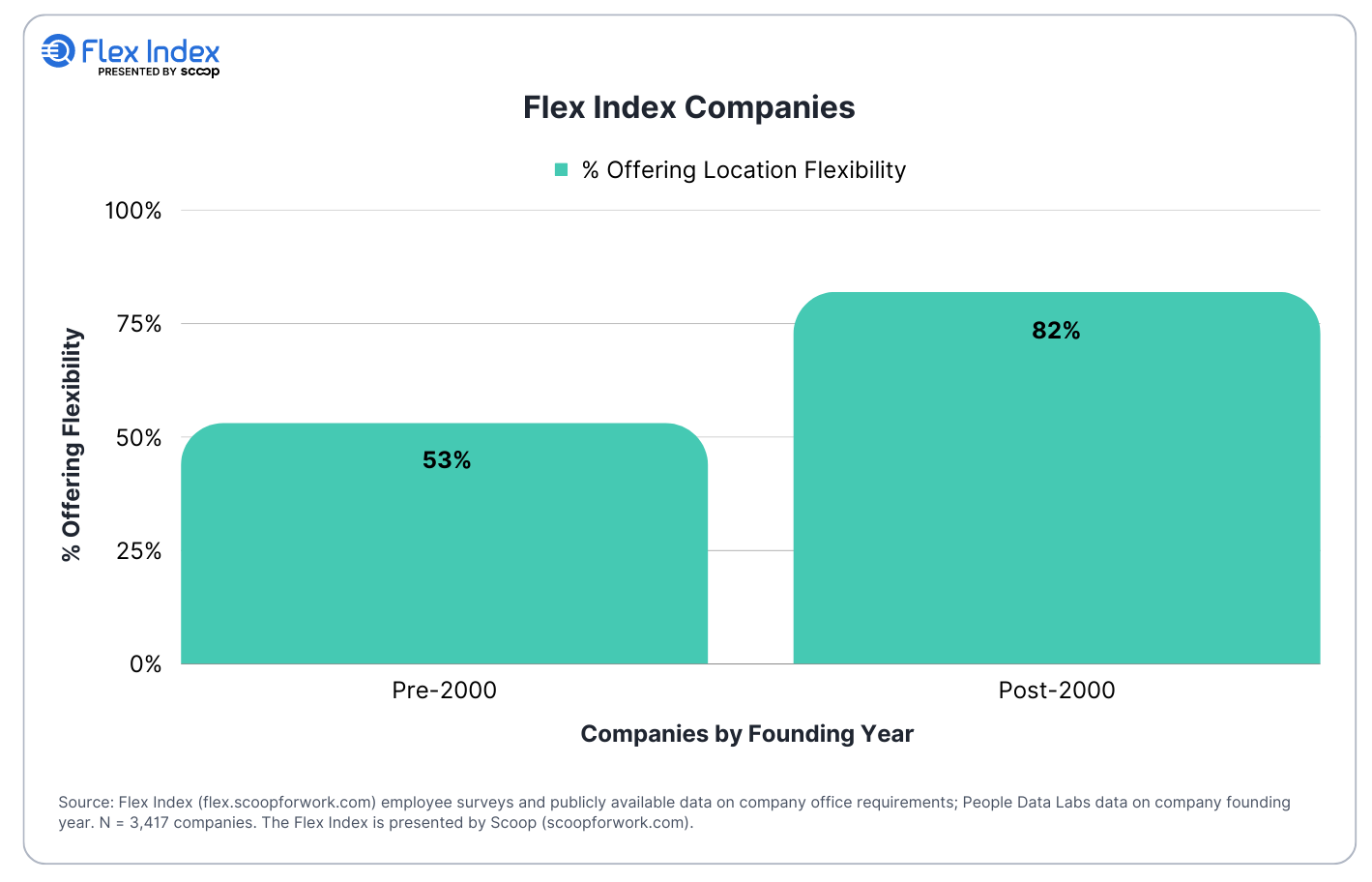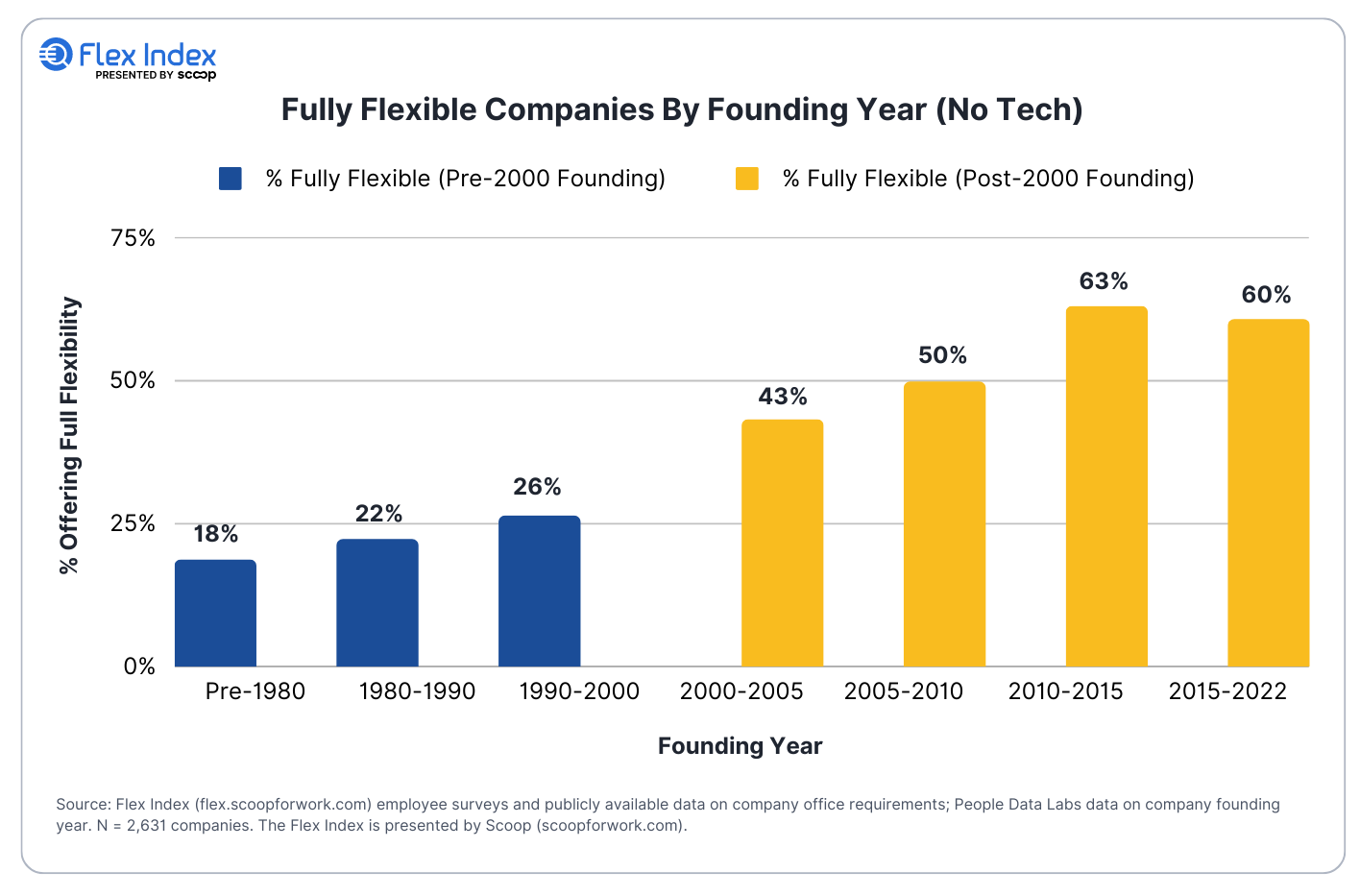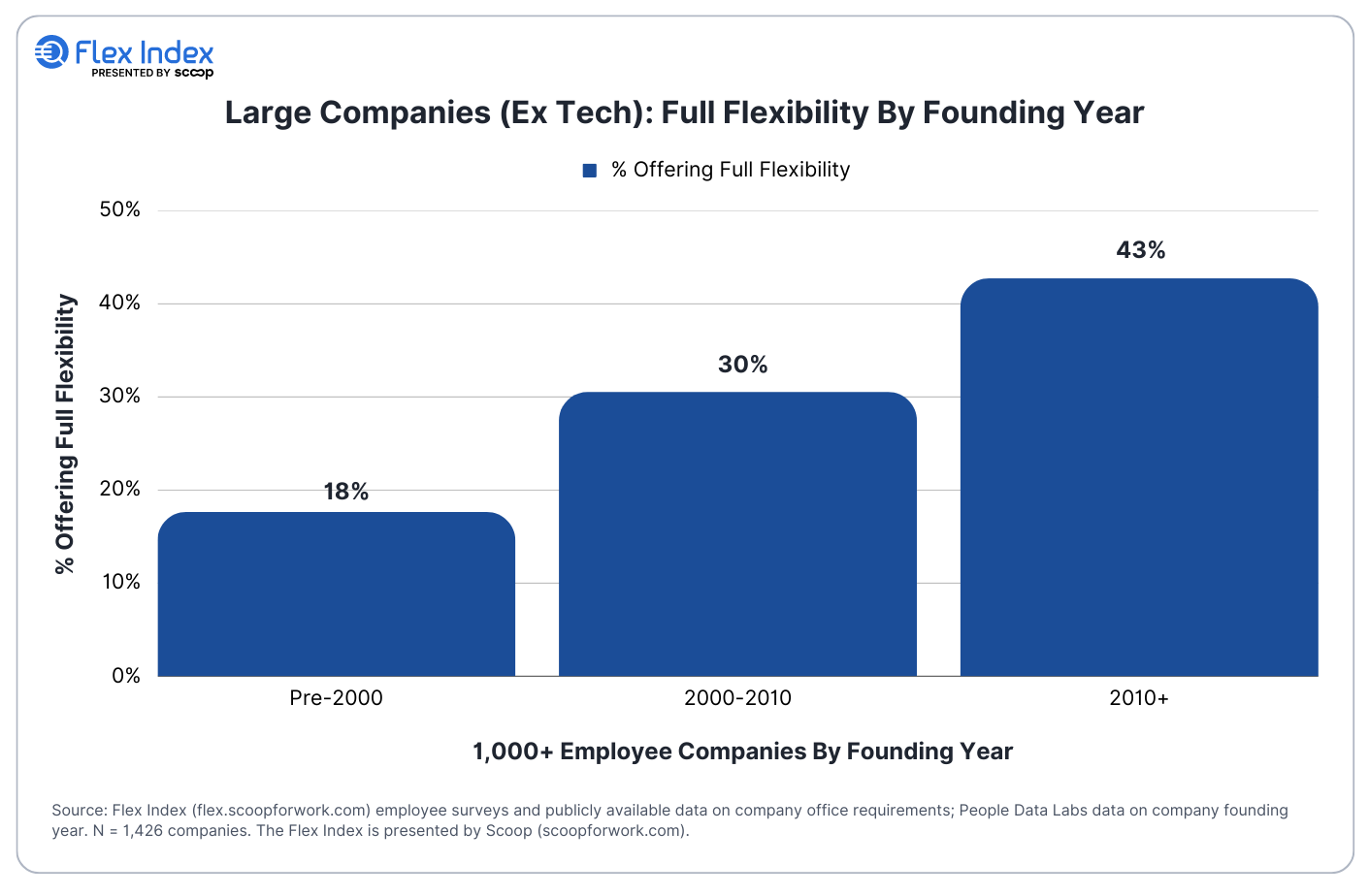Flex Index 4/11/23: New Report! Flexibility by Founding Date
Are newer companies more flexible than their older peers?
Current Subscribers: 1,346; +26 since last week
Please forward to colleagues and friends! Link to subscribe.
By The Numbers
Total Flex Index Companies: 4,158
Company listings added, edited, or verified this past week: 37
The Flex Report: Founding Date Deep Dive
According to the US Bureau of Labor Statistics (BLS), remote work is declining. The BLS found that 40% of US companies allowed some flexibility to work from home in 2021. That number dropped to 27% of companies allowing work from home in 2022, near the pre-pandemic rate (23%).
Yet several prominent researchers have found evidence to the contrary. The latest WFHResearch survey found that 40% of all US full-time employees work from home at least part of the time. And our Q1 2023 Flex Report found that the majority of US companies allow some work location flexibility.
So what's actually happening? Is work from home dying out, or here to stay?
To answer this question, in this report, we explore work location flexibility by the year a company was founded. By understanding whether companies started more recently offer more work location flexibility, we can gain a clearer picture of the future of work location flexibility in the US.
Want a sneak peek of what’s in the report? Here’s a little preview 👇 You can also read about it in Fortune.
There’s a Big Difference Between Companies Founded Pre/Post-2000
You’re far more likely to find work location flexibility at companies founded after 2000. 82% of Flex Index companies founded since 2000 offer at least some work location flexibility, whereas 53% of companies founded before 2000 offer flexibility.
Newer Companies Are Significantly More Likely to Be Fully Flexible
Full flexibility — where companies give employees a choice of whether to come into the office — is much more common in newer companies. 20% of companies started pre-2000 offer full flexibility, while 55% of companies founded post-2000 offer full flexibility.
Large Companies (1k+ Employees) Founded More Recently Tend to Be More Flexible
More recently founded large companies are more than 2x as likely to be Fully Flexible. 18% of large companies started pre-2000 offer Full Flexibility (either fully remote or employee's choice on when and whether to come into the office). 43% of large companies that started post-2010 offer full flexibility.
ICYMI: Flex Perspectives Debut Podcast 🎧
From Property to People featuring Phil Kirschner
Host Rob Sadow, CEO & Co-Founder at Scoop and Flex Index, and guest Phil Kirschner, Senior Expert and Associate Partner at McKinsey, dive into three crucial trends for real estate and people leaders:
The Real Estate function is increasingly reporting into HR
The key metrics to evaluate real estate are changing in the flexible work era
The importance of your office vibe in attracting employees to the office
Here’s a clip:
One Last Thing…
Add your company to the Flex Index with this 1-minute survey
Share this newsletter with friends and colleagues
About Scoop
Scoop is the fastest way to plan your next great office day. With Scoop, employees get more out of going in, with easily scheduled in-office days and invites. For HR and workplace leaders, Scoop provides insights on work location trends, office usage, and additional workplace solutions to get the most out of hybrid work.








